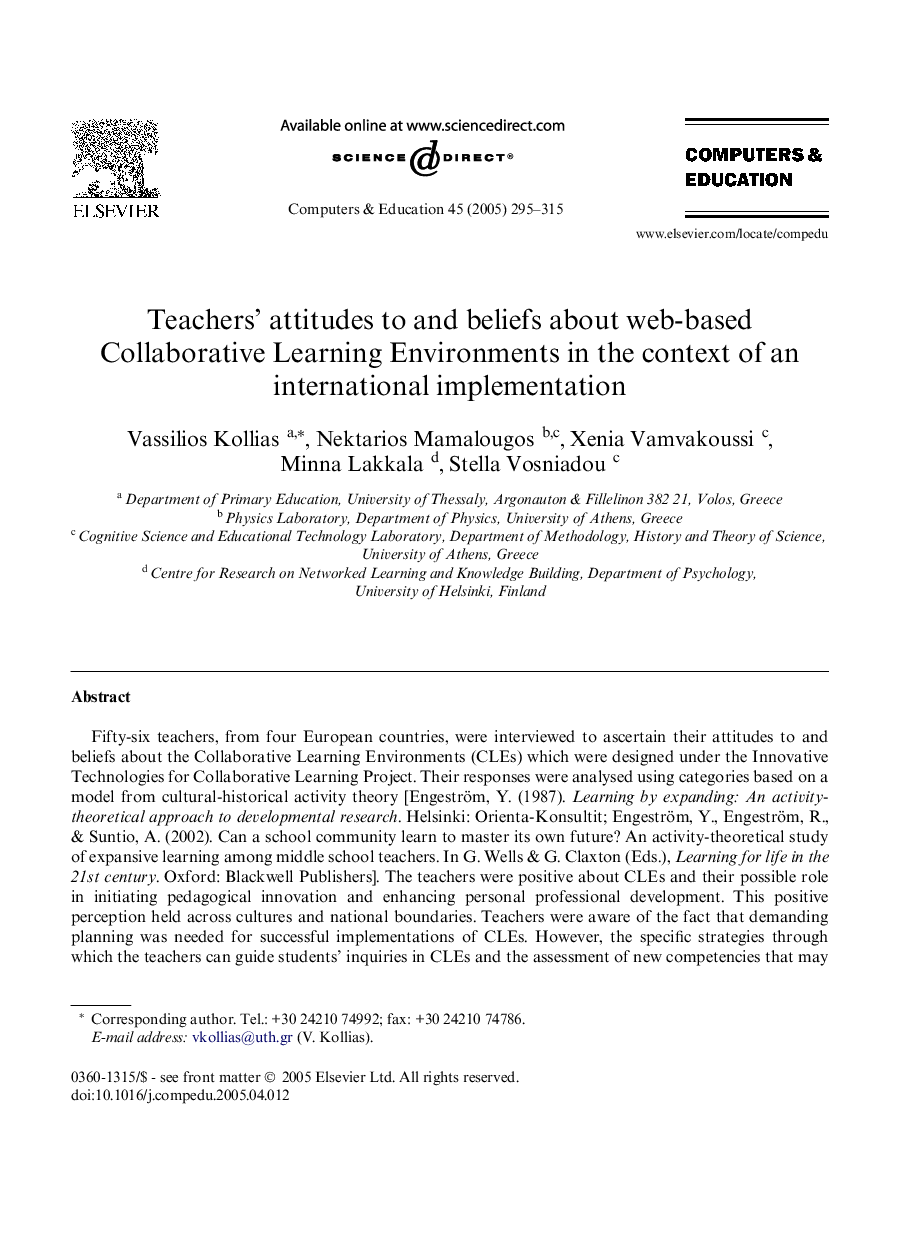| Article ID | Journal | Published Year | Pages | File Type |
|---|---|---|---|---|
| 10312389 | Computers & Education | 2005 | 21 Pages |
Abstract
Fifty-six teachers, from four European countries, were interviewed to ascertain their attitudes to and beliefs about the Collaborative Learning Environments (CLEs) which were designed under the Innovative Technologies for Collaborative Learning Project. Their responses were analysed using categories based on a model from cultural-historical activity theory [Engeström, Y. (1987). Learning by expanding: An activity-theoretical approach to developmental research. Helsinki: Orienta-Konsultit; Engeström, Y., Engeström, R., & Suntio, A. (2002). Can a school community learn to master its own future? An activity-theoretical study of expansive learning among middle school teachers. In G. Wells & G. Claxton (Eds.), Learning for life in the 21st century. Oxford: Blackwell Publishers]. The teachers were positive about CLEs and their possible role in initiating pedagogical innovation and enhancing personal professional development. This positive perception held across cultures and national boundaries. Teachers were aware of the fact that demanding planning was needed for successful implementations of CLEs. However, the specific strategies through which the teachers can guide students' inquiries in CLEs and the assessment of new competencies that may characterize student performance in the CLEs were poorly represented in the teachers' reflections on CLEs. The attitudes and beliefs of the teachers from separate countries had many similarities, but there were also some clear differences, which are discussed in the article.
Keywords
Related Topics
Social Sciences and Humanities
Social Sciences
Education
Authors
Vassilios Kollias, Nektarios Mamalougos, Xenia Vamvakoussi, Minna Lakkala, Stella Vosniadou,
